
In the race to harness the power of artificial intelligence (AI), data has emerged as the most critical asset for organizations. While AI may be regarded as the engine driving innovation, data is the fuel that powers it. Without robust, high-quality data, AI systems cannot function, let alone deliver insights that lead to business transformation. As executives grapple with the implications of AI on their industries, it is essential to understand that data, in all its forms, is the key to unlocking the true value of AI. This edition will explore why data is central to AI's success, the challenges organizations face in ensuring their data is ready for AI, and the steps they can take to optimize their data strategy to extract maximum value.
The Deluge of Data: A Staggering Reality
We live in an era characterized by an unprecedented explosion of data. According to recent estimates, over 328.77 million terabytes of data are created each day, with that number continuing to grow exponentially as the Internet of Things (IoT), mobile devices, and digital platforms proliferate. By 2025, the total amount of data generated globally is projected to reach a staggering 181 zettabytes.
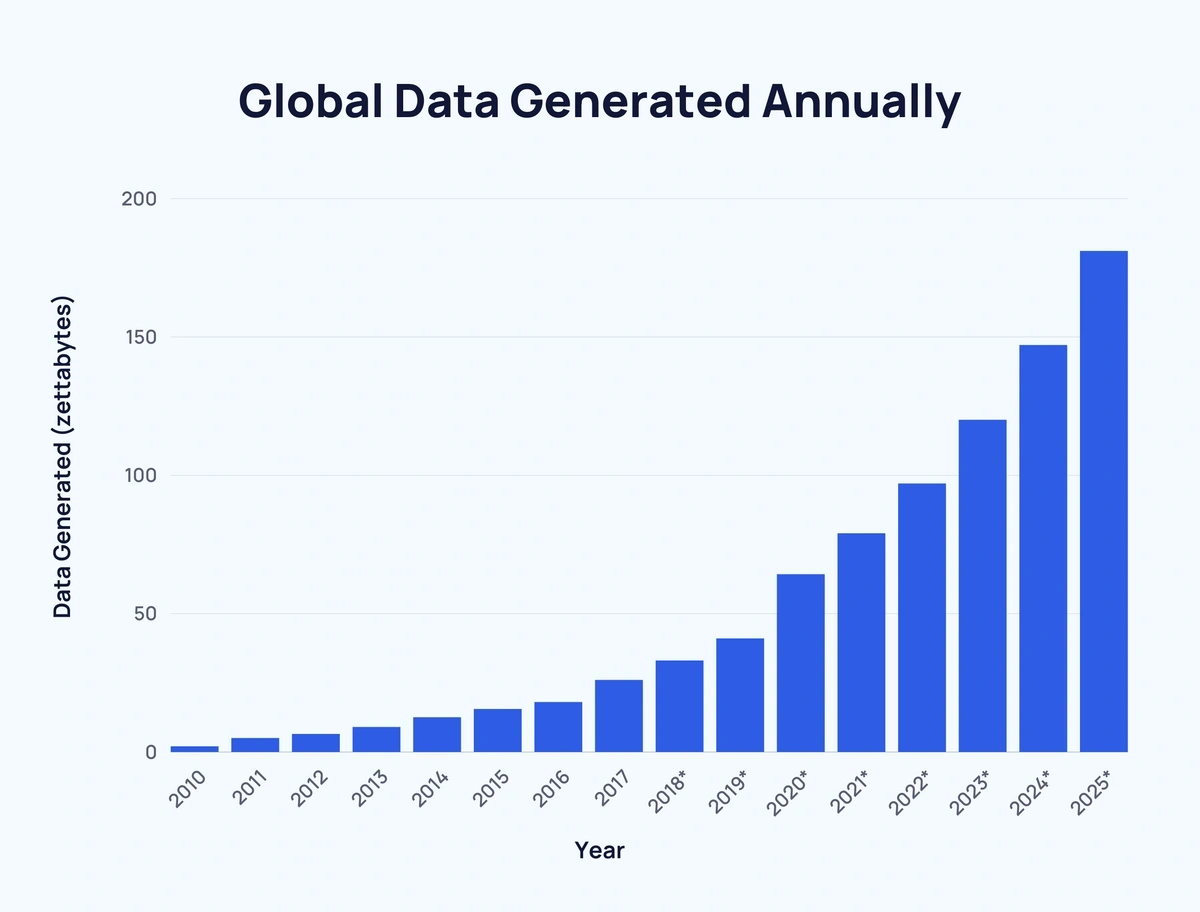
This deluge of information spans everything from transactional records and customer interactions to real-time data streams from IoT devices and social media platforms; and that data represents both a challenge and an opportunity. Without the right tools and strategies, this data remains an untapped resource. However, when used effectively, it can unlock unprecedented value through AI-driven insights and automation.
Why Data is at the Heart of AI
Understanding the types of data that AI systems use is critical for organizations aiming to leverage AI. These include:
- Structured Data: This refers to highly organized information, typically stored in databases or spreadsheets, such as customer profiles, financial records, or product inventories. It is easily searchable and analyzable.
- Unstructured Data: This type of data does not follow a specific format, such as text, images, videos, and social media posts. Unstructured data is more challenging to process but often contains valuable insights.
- Semi-Structured Data: This is a hybrid of the two, where data has some organizational properties but does not conform to a rigid structure, such as email messages or XML files.
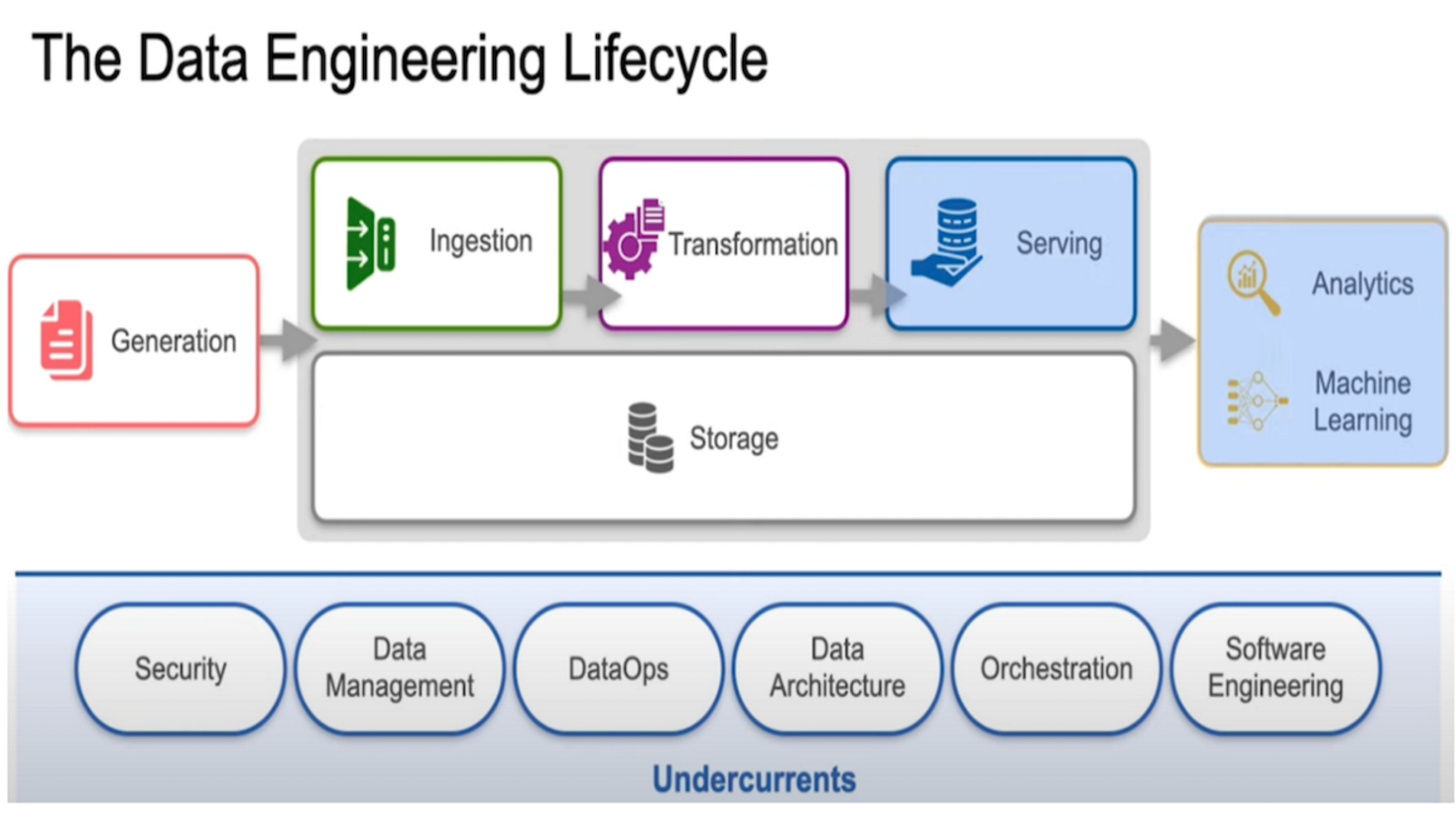
AI is intrinsically dependent on data. Over the past few decades, AI has evolved from rule-based systems, where specific instructions were coded by humans, to data-driven approaches. Modern AI, particularly machine learning and deep learning models, depend on large datasets to "learn" relationships and make predictions. As these systems are exposed to more data, they become more accurate, making data the most critical component of AI's success. Here’s how data plays a vital role throughout the AI lifecycle:
- Data trains AI: The foundational AI models rely on vast amounts of historical data to learn patterns, behaviors, and associations. Without robust high-quality datasets, AI algorithms would lack the depth and breadth necessary to make informed predictions or decisions.
- Data evaluates AI models: The performance of AI is constantly monitored through testing and evaluation datasets, which ensure that the AI continues to improve and adapt to new information. Once an AI model is trained, data is used to test and validate the model’s accuracy. This continuous feedback loop ensures that the AI system remains reliable, relevant, and effective in real-world applications.
- AI generates more data: As AI interacts with environments, processes, and systems, it creates new datasets that can be used to refine models further, creating a continuous loop of data utilization and creation. Indeed the field of generative AI (GenAI) is concerned with the various ways in which AI is used to generate new information in the form of text, images, numbers, code, audio, video, even simulated data.
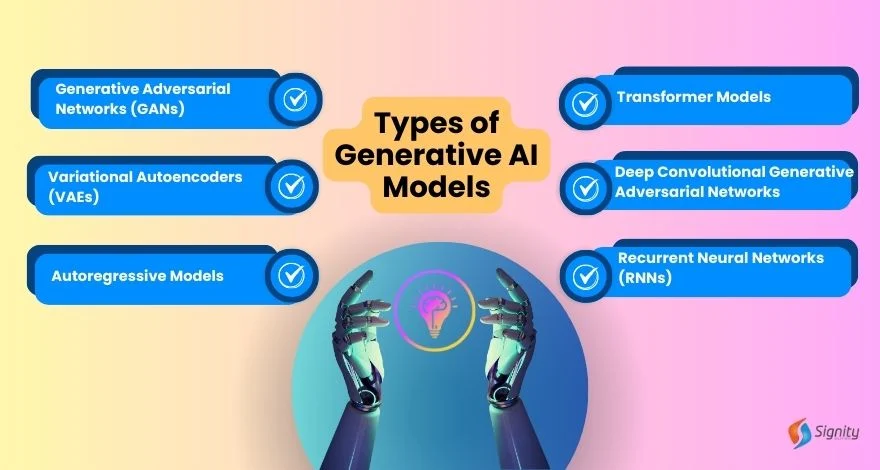
What Business Leaders are Saying About Data Challenges in AI
Given the centrality of data to AI, it’s no surprise that business leaders are increasingly voicing concerns about the quality, quantity, and security of their data. According to the 2023 Foundry AI Priorities Study, nearly half (48%) of respondents indicated that data quality and quantity issues were significant barriers to implementing GenAI solutions within their organizations.
The same study highlighted other critical concerns, including:
- Data privacy and ethical considerations (41%): Businesses are grappling with how to balance AI innovation with compliance to data privacy laws such as GDPR and CCPA.
- Data variability (37%): Different data sources can have varying formats and structures, creating integration challenges for AI models.
- Unlabeled or weakly labeled data (29%): Labeled data provides the context that AI models use to learn specific tasks. Without it, AI models lack the necessary context to function optimally. Labeling data is time-consuming and resource-intensive, creating a bottleneck for organizations eager to deploy AI solutions quickly.
These challenges highlight the critical need for organizations to implement a thoughtful data strategy, otherwise they risk building AI systems that are sub-optimal, prone to errors, or even detrimental to business operations.
Characteristics of Data Optimized for AI
In order for AI to generate value, organizations must prioritize the following data characteristics:
- Data Quality: Clean, accurate, and consistent data is essential for AI models to produce meaningful outputs. In the financial sector, AI relies heavily on high quality customer data to power fraud detection, credit scoring, and personalized financial advice. For example, AI-driven fraud detection systems analyze customer transaction data to identify unusual patterns that may indicate fraudulent activity.
- Unbiasedness: Biased data inevitably leads to biased AI models, which can have far-reaching negative consequences, from discriminatory hiring practices to unfair loan approvals. Ensuring that data is diverse, representative and free from inherent biases is a critical step in building fair and effective AI systems.
- Scalability and Big Data Readiness: AI systems thrive on large datasets and advanced models must be able to handle big data. Organizations must have the infrastructure and tools to handle and scale their data operations to feed AI models with the volume of data they need. This includes cloud-based data storage and processing solutions that can manage large datasets efficiently, robust data pipelines and advanced analytics capabilities.
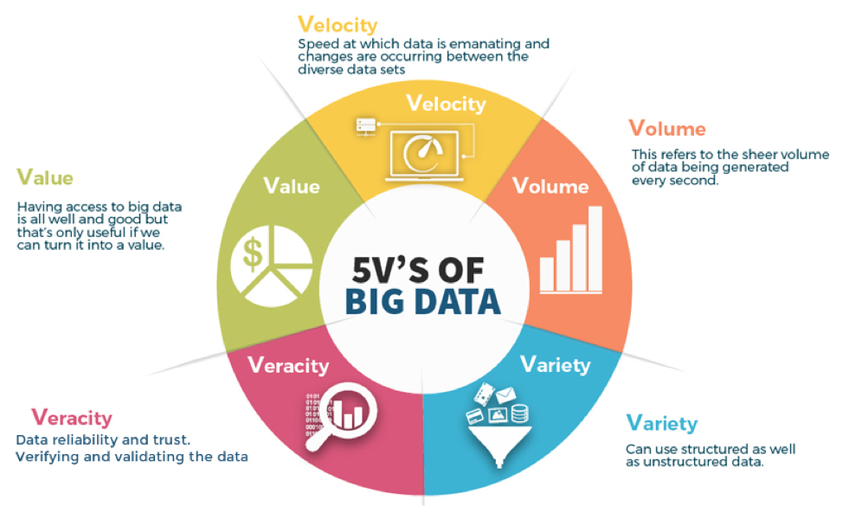
- Privacy and Security: With increasing regulatory scrutiny around data privacy, organizations must ensure that their AI systems comply with data protection laws like GDPR and CCPA. Data used in AI must be handled with care, ensuring that sensitive information is anonymized and secure throughout the AI lifecycle. Failure to address privacy and security concerns can lead to not only legal repercussions but also a loss of customer trust.
- Accessibility: Within secure frameworks, the data across all sources must be readily accessible to the AI models and the models must be afforded the flexibility to interact with data in various ways. In retail for instance, AI-powered recommendation engines use purchase history and browsing data to offer personalized product suggestions. This relies upon real-time access to consumer data.
- Transparency and Explainability: Data transparency allows organizations to understand the inputs used by AI models and ensures that the outputs are interpretable. This is particularly important in sectors like finance, healthcare, and law, where decisions can have life-altering consequences for individuals.
Steps Organizations Can Take to Unlock Value Through Data
To fully realize the value of AI, organizations must take a strategic approach to managing and optimizing their data. Data technology advisors and services providers such as The dAIta Solution can assist with the development of strategies to ensure that your data is ready for AI. Some areas to consider include:
- Develop a comprehensive AI data strategy that aligns with your business objectives
- Implement strong data governance with robust frameworks that enable secure and efficient use of data sources
- Leverage Master Data Management (MDM) to ensure consistency and accuracy
- Foster a data-centric culture and promote data literacy across the organization
- Implement a robust risk and compliance framework that protects data and manages risks
- Design robust data architectures that support rapid prototyping and increasing capacities
- Develop data science capabilities and establish cross-functional AI teams that cut across the organization
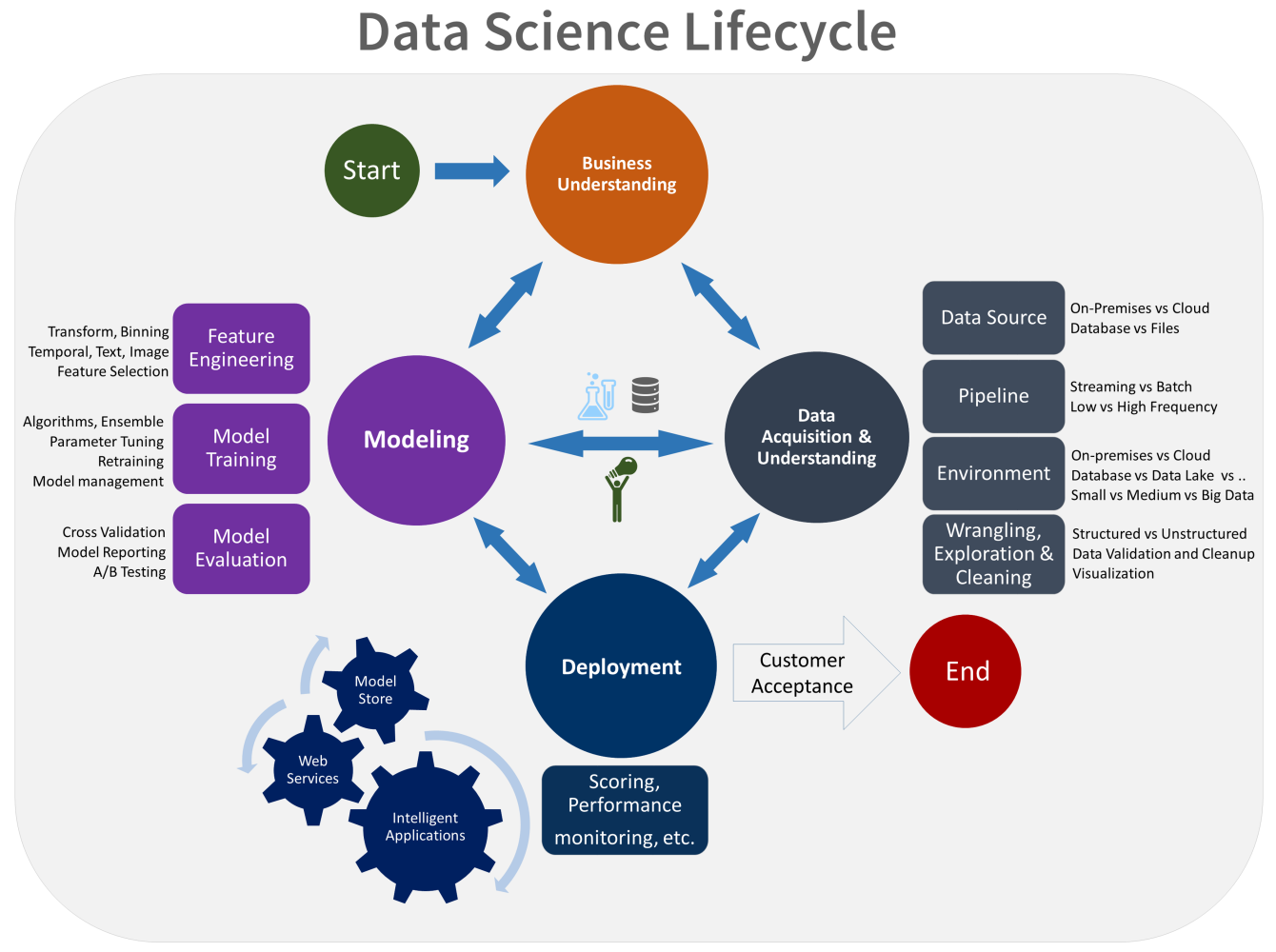
Conclusion: Data Unlocks AI's Full Potential
In today’s data-driven world, AI holds immense potential to transform industries and drive competitive advantage. However, the success of AI initiatives hinges entirely on the availability, quality, and management of data. For executives, the message is clear: investing in a strong data foundation is a strategic imperative.
As you move forward in your AI journey, remember that data is not just a byproduct of digital operations, it is a strategic asset both for AI applications and beyond. Business leaders must prioritize data management and optimization today to be well positioned to effectively utilize AI solutions tomorrow. It is imperative to work with in-house data experts or partner with a trusted data and AI practitioner; this is especially true for leaders that do not have a technical background.
------------------------------------------------------------------------
Subscribe to the AI newsletter and join the conversation on LinkedIn.
Have you begun to use AI yet? Or are you struggling to achieve tangible value from your deployments of AI to date?
Explore our offerings and acquire an expert partner today.

About The dAIta Solution
The dAIta Solution provides strategic consultancy, process and data mining, analytics, reporting and automation implementation solutions powered by AI that enable organizations to achieve their full potential hidden within the information that they possess. Our proprietary mining and analytics techniques and vendor-agnostic AI and data software streamlines the path to results and facilitates automation of both the analysis of your organization and implementing solutions to weaknesses or growth opportunities identified. Founded by senior consultancy services executives, data scientists and former EY leaders, The dAIta Solution is headquartered in Los Angeles with operations in London, Lagos and Singapore. For more information, please visit thedaitasolution.com.
Latest Resources
Want to see The dAIta Solution in action?
Get in touch now for a free demo of the platform, our products and services





